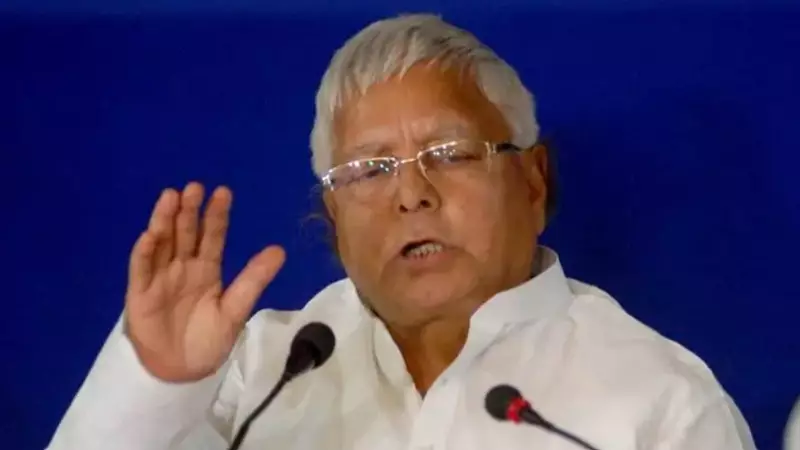
In a dramatic political move that's stirring conversations across Bihar, Rashtriya Janata Dal (RJD) chief Lalu Prasad Yadav has fielded former MP Sudhakar Singh as the party's candidate from Buxar constituency for the upcoming Lok Sabha elections. The decision has raised eyebrows because Singh is currently serving time in jail, facing charges in a 2013 extortion case.
The Controversial Candidate
Sudhakar Singh, who previously represented the Buxar constituency in Parliament, finds himself at the center of a political storm. The former MP was arrested and sent to judicial custody in connection with an alleged extortion case that dates back to 2013. Despite his incarceration, the RJD has chosen to place its faith in him once again, signaling a bold political strategy.
Lalu's Political Gambit
Political analysts see this move as characteristic of Lalu Prasad Yadav's style of politics, where loyalty often trumps conventional wisdom. The RJD chief, known for his sharp political instincts, appears to be making a statement about standing by his allies regardless of their legal troubles. This decision comes at a crucial time when the opposition alliance in Bihar is seeking to consolidate its position against the ruling NDA.
Public Reaction and Political Implications
The nomination has sparked mixed reactions among voters and political observers. While some see it as a masterstroke that could galvanize the RJD's traditional voter base, others question the ethics of fielding a candidate who is currently behind bars. The move also puts the spotlight on how legal issues intersect with electoral politics in India.
The Legal Background
Sudhakar Singh's legal troubles stem from an extortion case registered against him in 2013. The case has been progressing through the judicial system, and his current incarceration reflects the seriousness of the charges. However, Indian election laws do not explicitly bar individuals facing criminal charges from contesting elections unless they have been convicted.
Election Commission's Stance
The Election Commission of India has previously expressed concerns about candidates with criminal backgrounds contesting elections. However, without specific legal provisions preventing such candidates from running, the commission's hands remain tied. This case once again highlights the ongoing debate about criminalization in Indian politics.
As Bihar prepares for another electoral battle, the Buxar constituency promises to be one of the most closely watched contests, not just for its political significance but for the larger questions it raises about democracy, ethics, and the evolving nature of Indian politics.






